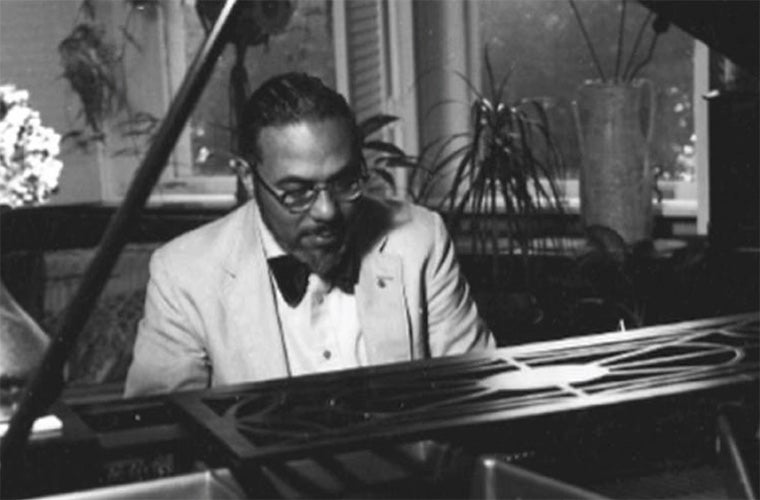
Hale Smith
1925 - 2009
Biography
Hale Smith (June 29, 1925 – November 24, 2009) was an American composer, arranger, and pianist.
Born in Cleveland, Ohio, he learned piano at an early age and played mellophone in the high school band. As a teenager, he played jazz piano in local nightclubs. When he was sixteen, he met Duke Ellington, who commented on his compositions.
In the early 1940s he was drafted and worked for the U.S. Army as an arranger for shows at camps in Georgia and Florida. After the Army he studied classical music and composition at the Cleveland Institute of Music and received bachelor's and master's degrees. His composition Four Songs won the first student composer award given by BMI] During the late 1950s he moved to New York City and was employed as an editor at publishing companies. He worked as a jazz pianist and arranger with Eric Dolphy, Dizzy Gillespie, Ahmad Jamal, Melba Liston, Oliver Nelson, and Randy Weston and wrote incidental music for television, radio, and theater. With Chico Hamilton he wrote music for the movie Mr. Ricco (1975).
In 1948, he got married to Juanita Hancock. He has a daughter named Robin residing in Manhattan, and three sons: Michael from Freeport, Eric from York, PA, and Marcel from Harpursville, NY. Additionally, he has three grandchildren.
His compositions include The Valley Wind (1952), In Memoriam, Beryl Rubinstein (1953), Sonata for Cello and Piano (1955), Contours for Orchestra (1961), Faces of Jazz (1965), Evocation (1966), Ritual and Incantation (1974), Innerflexions (1977), Toussaint L'Ouverture (1979), Solemn Music (1979), Three Patterson Lyrics (1985), and Dialogues and Commentaries (1991)[2][3] He wrote music for band, choir, orchestra, jazz groups, chamber ensembles, duos, and solo performance.
Smith was a teacher at C.W. Post campus of Long Island University in Brookville and the University of Connecticut in Storrs. He died at the age of 84 on November 24, 2009, due to a stroke. Among his notable students was Talib Rasul Hakim.
Source: Wikipedia